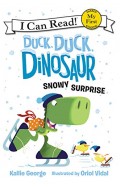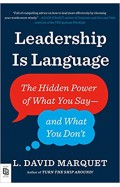Impossibility The Limits of Science and the Science of Limits
By: JOHN D. BARROW
-
Rs 637.50
- Rs 750.00
- 15%
You save Rs 112.50.
Due to constant currency fluctuation, prices are subject to change with or without notice.
In Impossibility, John D. Barrow--one of our most elegant and accomplished science writers--argues convincingly that there are limits to human discovery, that there are things that are ultimately unknowable, undoable, or unreachable. Barrow first examines the limits of the human mind: our brain evolved to meet the demands of our immediate environment, and much that lies outside this small circle may also lie outside our understanding. He investigates practical impossibilities, such as those imposed by complexity, uncomputability, or the finiteness of time, space, and resources. Is the universe finite or infinite? Can information be transmitted faster than the speed of light? The book also examines deeper theoretical restrictions on our ability to know, including Godel's theorem, which proved that there were things that could not be proved. Finally, having explored the limits imposed on us from without, Barrow considers whether there are limits we should impose upon ourselves. Weaving together this intriguing tapestry, Barrow illuminates some of the most profound questions of science, from the possibility of time travel to the very structure of the universe.
| Book | |
| What's in the Box? | 1 x Impossibility The Limits of Science and the Science of Limits |
In Impossibility, John D. Barrow--one of our most elegant and accomplished science writers--argues convincingly that there are limits to human discovery, that there are things that are ultimately unknowable, undoable, or unreachable. Barrow first examines the limits of the human mind: our brain evolved to meet the demands of our immediate environment, and much that lies outside this small circle may also lie outside our understanding. He investigates practical impossibilities, such as those imposed by complexity, uncomputability, or the finiteness of time, space, and resources. Is the universe finite or infinite? Can information be transmitted faster than the speed of light? The book also examines deeper theoretical restrictions on our ability to know, including Godel's theorem, which proved that there were things that could not be proved. Finally, having explored the limits imposed on us from without, Barrow considers whether there are limits we should impose upon ourselves. Weaving together this intriguing tapestry, Barrow illuminates some of the most profound questions of science, from the possibility of time travel to the very structure of the universe.
Impossibility The Limits of Science and the Science of Limits
By: JOHN D. BARROW
Rs 637.50 Rs 750.00 Ex Tax :Rs 637.50
Zubin Mehta: A Musical Journey (An Authorized Biography)
By: VOID - Bakhtiar K. Dadabhoy
Rs 892.50 Rs 1,050.00 Ex Tax :Rs 892.50
Symbol and Archetype A Study of the Meaning of Existence
By: Martin Lings
Rs 585.00 Rs 650.00 Ex Tax :Rs 585.00
Is Pluto a Planet?: A Historical Journey through the Solar System
By: David A. Weintraub
Rs 6,115.75 Rs 7,195.00 Ex Tax :Rs 6,115.75
Beyond UFOs: The Search for Extraterrestrial Life and Its Astonishing Implications for Our Future
By: Jeffrey Bennett
Rs 4,797.50 Rs 9,595.00 Ex Tax :Rs 4,797.50
The Islamist Why I Became an Islamic Fundamentalist What I Saw Inside and Why I Left
By: Ed Husain
Rs 510.00 Rs 600.00 Ex Tax :Rs 510.00
The Demon Haunted World Science As A Candle In The Dark
By: Carl Sagan
Rs 3,595.50 Rs 3,995.00 Ex Tax :Rs 3,595.50
Symbol and Archetype A Study of the Meaning of Existence
By: Martin Lings
Rs 585.00 Rs 650.00 Ex Tax :Rs 585.00
Do the Shadow Work - And Find Lasting Self-Love and Acceptance
By: Charlie Morley
Rs 3,505.50 Rs 3,895.00 Ex Tax :Rs 3,505.50
Curriculum Planning and Instructional Design for Gifted Learners
By: Joyce VanTassel-Baska
Rs 9,895.50 Rs 10,995.00 Ex Tax :Rs 9,895.50
World of Eric Carle, 10 Wooden Blocks and Interactive First Look and Find Board Book Set
By: Phoenix International Publications
Rs 2,695.50 Rs 2,995.00 Ex Tax :Rs 2,695.50
Reading Gems: The Weather Monster (Level 4)
By: QED Publishing
Rs 715.50 Rs 795.00 Ex Tax :Rs 715.50
The Mechanism of Mind Understand how your mind works to maximise memory and creative potential - (PB)
By: Edward De Bono
Rs 2,545.75 Rs 2,995.00 Ex Tax :Rs 2,545.75
Find My Favourite Things: Search and find! Follow the characters from page to page!
By: DK
Rs 2,065.50 Rs 2,295.00 Ex Tax :Rs 2,065.50
Duck, Duck, Dinosaur: Snowy Surprise (My First I Can Read)
By: Kallie George
Rs 895.50 Rs 995.00 Ex Tax :Rs 895.50
Knowledge A Visual Compendium - Making Sense of Our World
By: DK
Rs 5,665.50 Rs 6,295.00 Ex Tax :Rs 5,665.50
Efficiently Managing Inventory and Sales to Maximize Earnings
By: Geary Reid
Rs 7,050.75 Rs 8,295.00 Ex Tax :Rs 7,050.75
Say Less, Lead More: A Game-Changing Approach to Empowering Your Team
By: L. David Marquet
Rs 1,695.75 Rs 1,995.00 Ex Tax :Rs 1,695.75
Zubin Mehta: A Musical Journey (An Authorized Biography)
By: VOID - Bakhtiar K. Dadabhoy
Rs 892.50 Rs 1,050.00 Ex Tax :Rs 892.50
Impossibility The Limits of Science and the Science of Limits
By: JOHN D. BARROW
Rs 637.50 Rs 750.00 Ex Tax :Rs 637.50
Symbol and Archetype A Study of the Meaning of Existence
By: Martin Lings
Rs 585.00 Rs 650.00 Ex Tax :Rs 585.00












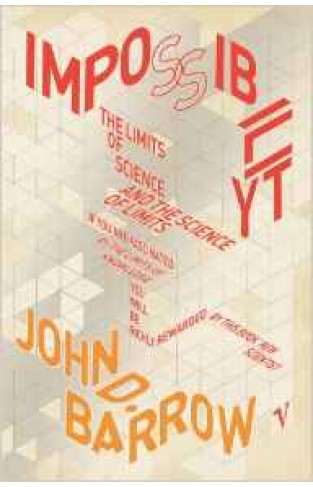
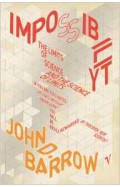
-120x187.jpg?q6)





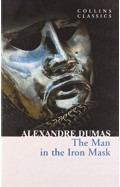


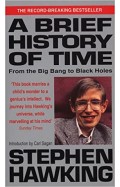
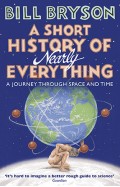
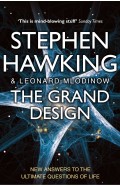
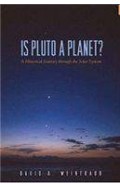
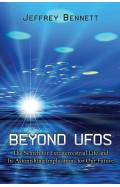
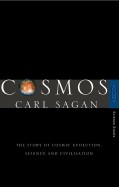
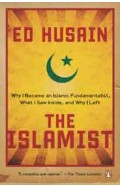
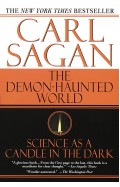




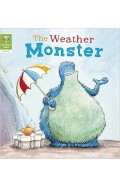
-120x187.jpg?q6)

